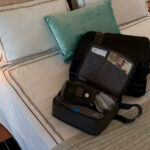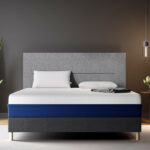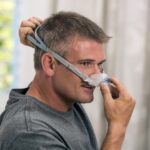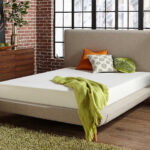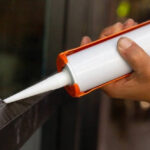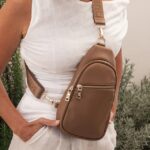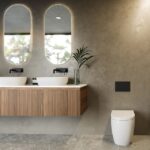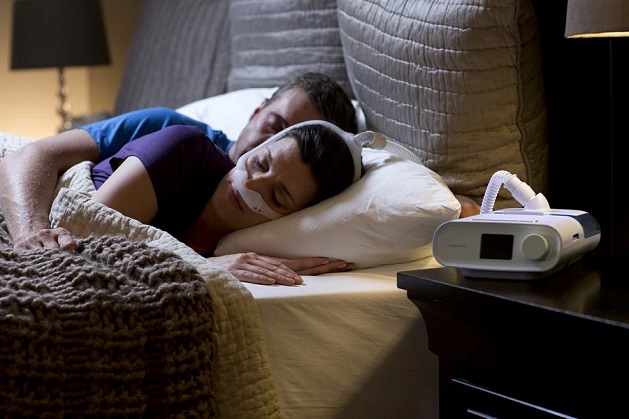
Sleeping well at night is essential for waking up refreshed and full of energy to tackle our daily tasks and challenges. However, for many people with snoring issues, this seems like an unattainable goal that prevents them from having a restful and uninterrupted sleep at night. Still, snoring isn’t only a nuisance for the snorer but for the partner you are sleeping with as well.
What is Snoring and How do Snoring Devices Work?
Snoring is the loud voice that comes out of a person’s mouth during sleep. This usually indicates a number of factors that could be the reason behind it. If you are having this trouble yourself perhaps you are wondering what do people do to stop snoring? Well, there are actually many ways you to prevent it. From changing your lifestyle, which means maintaining a healthy weight, eating healthy, and consuming less alcohol, to implementing some medical devices specially made for the treatment of this health issue.
What Is The Most Effective Anti-Snoring Device?
There are many different options available on the market for treating snoring issues such as anti-snoring straps, anti-snoring mouth guards, nasal strips, etc. We’ve made a list of some of the best that have proven to be the most effective. By providing an insight into each one of them you can get acquainted and make a better decision when it comes to choosing the right snoring device for your needs.
Types of Anti-Snoring Devices
Anti-Snoring Chin Straps
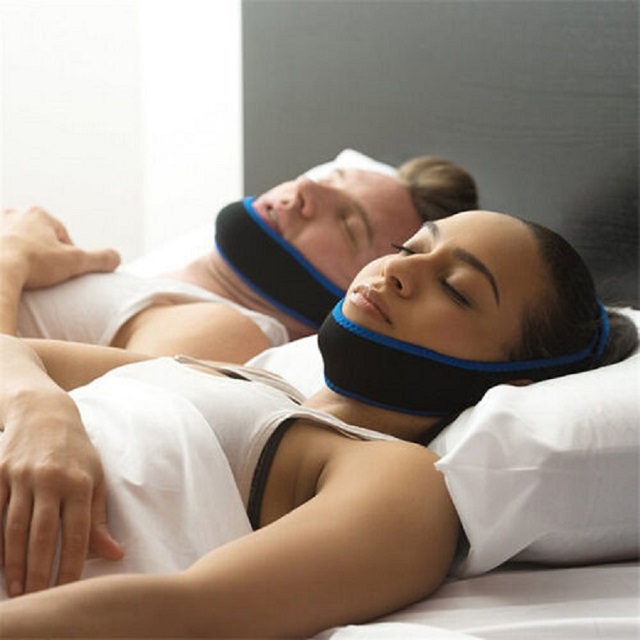
While no product is guaranteed to work for all people, a wide number of research studies confirms the fact that secure and comfortable snoring chin straps have been especially useful in offering alleviation from the symptoms. They are specially designed to keep your jaw clenched to prevent your mouth from opening as you sleep. This prevents air to travel to and from your throat, which minimizes the rapid flapping that is the primary cause of the sound that snorers make.
They are usually made from flexible fabric or neoprene-type material that wraps comfortably over your head and supports your chin. They’re handy products that are long-lasting, easily washable, and adjustable. By using these straps you’d be forced to breathe through your nose, thereby reducing the snoring and maximizing the sleep therapy you receive from your CPAP machine.
One of the biggest advantages of using practical chin straps is the fact that they don’t need to be inserted into your mouth like most TSDs and MADs which many people find uncomfortable. Therefore, these devices make the best choice and ideal solution for people with dentures and other oral issues.
Nasal Strips
Besides straps for the chin, many people decide to use nasal strips to temporarily reduce their snoring symptoms. The way they work is relatively simple. They are flexible, “spring-like” bands that you can place properly on the nose, right above the area of each nostril. On the underside of the band, there is a special adhesive that allows them to stick to your nose gently.
As the bands attempt to straighten back to their original shape, they gently lift the sides of the nose which in turn opens the nasal passages providing you with immediate and continual relief from the symptoms. Like many other OTC treatments, these products may temporarily reduce the snoring associated with nasal blockage or sinus congestion, but they don’t provide a permanent fix to the problem.
Tongue Stabilizing Device
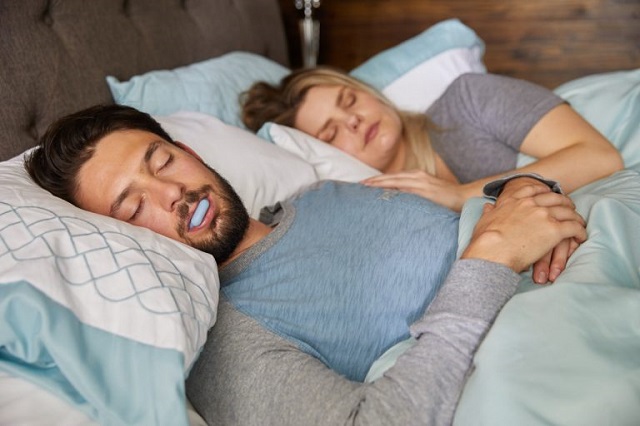
In comparison to these two we mentioned so far, the highly functional snoring chin straps and the nasal strips, the tongue stabilizing devices (TSDs) use a slightly different approach to confront the snoring symptoms. They work on the principle of opening up the airway by pulling the tongue forward by its tip. The TSD device attaches to the tongue through gentle suction, thus preventing the restriction of air to pass freely which is the major cause of snoring discomfort and sleep apnea.
Before deciding on using this device, you should consult a medical professional to provide you with instructions on how to properly utilize this piece of snoring equipment. It is also important to maintain good hygiene of the TSD to prevent the cause of infections and minimize the unpleasant smell.
Mandibular Advancement Device (MAD)
The mandibular advancement treatment is an alternative method commonly utilized for treating people with snoring issues. This method is named after the mandible or jawbone. Unlike the comfortable design of the chin snoring strap, this one works on the principle of temporarily moving the jaw and tongue forward, which results in a reduction of throat constriction which prevents the cause of snoring and sleep apnea.
What’s also important about these devices is that they are not suitable for people who wear dentures or have severe dental issues. Therefore, some of these MADs devices are custom or semi-custom made to fit a specific person’s mouth.
Anti Snore Pillows
For many people, the right pillow plays a vital role in the quality of their sleep. There are many anti-snoring pillows that are specially designed for people with this kind of issue. These pillows encourage side sleeping and are meant to align your head and shoulder to keep your airways as open as possible. As such, they go great in a combination with the convenient snoring chin straps.
A pillow that puts your body in the right position may alleviate these problems and help you sleep better. For instance, the CPAP pillows are ergonomically created to accommodate the mask and hose of the CPAP device to prevent accidental misalignments that may happen during sleep. Most of these pillows are made with polyurethane, which is the building block of memory foam, that is strong enough to provide the right support and comfort for snorers.

